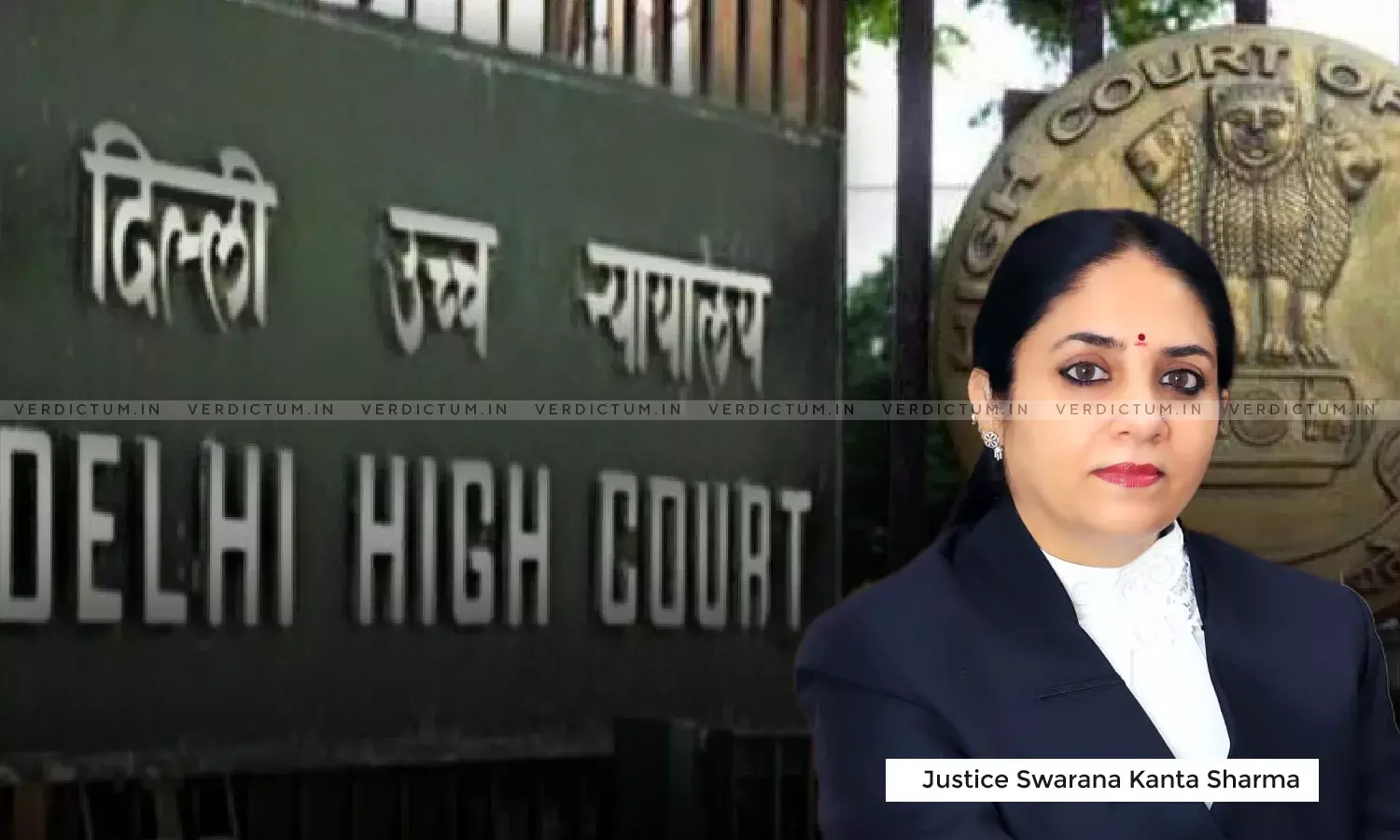Jamia Nagar Case- Right To Freedom Of Peaceful Assembly Cannot Be Aimed At Destruction Of Rights & Freedom Of Others: Delhi HC

Justice Swarana Kanta Sharma, Delhi High Court
The Delhi High Court has observed that the right to freedom of peaceful assembly cannot be aimed at destruction of rights and freedom of others.
The Court observed that though the right of freedom of expression cannot be criminalized, the threat to life of others and public and private property preventing public servants from doing their duty, the actions of violence and damaging property will certainly attract criminal law.
The bench of Justice Swarana Kanta Sharma made this observation while setting aside the Trial Court Order discharging 11 people in 2019 Jamia Nagar Violence Case. The Court ordered framing of charges against them.
“Protecting and promoting freedom of speech and expression is not only a fundamental constitutional right but every court is duty bound to protect the same. The student community is not a different group in itself who enjoys any extra right in this regard but being citizens of India they have equal right to freedom of speech and expression and protest as all other citizens of this country.”, the Court observed.
Additional Solicitor General Sanjay Jain appeared for the State and Senior Advocate Rebecca John appeared for the Respondents.
While noting the role of internet and social media, the Court observed that “…the challenge the law enforcing agency will face when provocative actions and speeches are delivered on the spot or slogans are raised, violent acts are committed, they have tendency to spread within seconds threatening the law and order situation in the concerned area.”
The Court further observed that "The scale of presence of persons in the assembly who had turned violent and aimed at disrupting peace or violating a law as in the present case, the mob which has turned violent at the spot wanted to violate the law by marching to the curfew bound area and indulged in violent acts, it continued occupying the college campus gates and outside of it while continuing to pelt stones, bottles and tubes as one can hear in the announcements made through loud-hailer indicate that it was not a peaceful assembly to attract protection under the Constitution."
The Court noted that the protesters turned violent and started pelting stones, breaking barricades, standing on the barricades, pushed the barricades against the police officers.
The Court observed that the crowd turning violent and marching towards curfew bound area had given rise to such apprehension and fear which necessitated restricting their movement to the area where they had assembled and they were told that they can peacefully protest there.
The Court pointed out that the circumstances surrounding the incident which was captured in the electronic evidence and multiple statements of the witnesses who were present at the spot indicated that the protesters were informed that the privilege of peaceful protest and protection guaranteed under Article 19 would come to an end in case of persisting violence and the protesters indulging in violating the law.
The trial court had in its February 4 order discharged 11 people while holding that they were made "scapegoats" by police and that dissent has to be encouraged, not stifled.
While discharging the 11 accused, the trial court ordered the framing of charges against one of the accused, Mohammad Ilyas. The Jamia Nagar police station had filed the charge sheet against Imam, Tanha, Safoora Zargar, Mohammad Qasim, Mahmood Anwar, Shahzar Raza Khan, Mohammad Abuzar, Mohammad Shoaib, Umair Ahmad, Bilal Nadeem, Chanda Yadav and Mohammad Ilyas.
Cause Title- State v. Mohd. Qasim & Ors. (Neutral Citation NO. 2023:DHC:2191)
Click here to read/download Judgment

